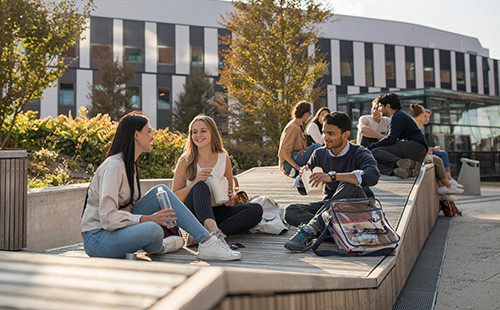Mindfulness
Especially in difficult times like the COVID-19 crisis we’re currently experiencing, mindfulness can be an invaluable valuable resource for dealing with the situation day by day. Mindfulness is free of charge, it doesn’t take up space, and it doesn’t require contact with others – the only thing needed is a bit of practice.
Mindfulness means perceiving every moment consciously as it is, without making any judgements. By regularly focusing our attention on the present moment, we can train our brain and change its architecture in the long term. We become more satisfied with what we have, calmer, and more resilient.
Mindfulness exercises (e.g. mini meditations) can help you overcome cabin fever or other unpleasant feelings. Mindfulness can help you avoid knee-jerk reactions to stressful situations. It is like a buffer between the trigger (the stressful situation) and your reaction to the trigger. It helps you to recognize your automatic responses to stressors, be aware of them, and to break them up or change them. Taking a close look is a first, very important step. Mindfulness is like switching on the lights in a dark room.
We have put together some short mindfulness exercises for you to practice in your everyday life. You don’t have to become a Zen master to remain calm in stressful times. These exercises can help you get started.
Practical tips:
Don’t worry if your mind keeps drifting off when you start practicing, if you start to think about certain things, or if you get lost in memories. That’s part of the exercise. If you notice that you’re drifting off, that alone means that you’re in a state of mindfulness.
Mindfulness is a skill that needs to be learned. Don’t give up and be patient, and it will pay off! Our brain is like a muscle that needs constant exercise.
Sources & further reading
Collard, Patrizia: Das kleine Buch vom achtsamen Leben. Wilhelm Heyne Verlag. München, 2014.
Hougaard, Rasmus: One Second Ahead. Enhance your performance at work with Mindfulness. Hampshire, Palgrave Macmillan, 2016.
Irrmischer, M., Houtman, S. J., Mansvelder, H. D., Tremmel, M., Ott, U., & Linkenkaer-Hansen, K.: Controlling the Temporal Structure of Brain Oscillations by Focused Attention Meditation. Human Brain Mapping, 2018/39, 1825–1838.
Laneri, D., Schuster, V., Dietsche, B., Jansen, A., Ott, U., & Sommer, J.: Effects of Long-Term Mindfulness Meditation on Brain’s White Matter Microstructure and its Aging. Frontiers in Aging Neuroscience, 2016/7, 254.
Ott, U., & Hölzel, B. K.: Meditationsforschung: neuroanatomische Befunde. Deutsche Zeitschrift für Akupunktur, 2011/54, 17–19.
Stern.de.URL: https://www.stern.de/panorama/wissen/mensch/meditationsforscher-achtsamkeit-veraendert-das-gehirn-3560756.html (April 8, 2020)
